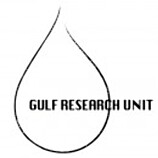
Archive: Gulf Research Blog
Blog articles from 2009 to 2012. The Gulf Research Unit is research programme based at the University of Oslo.
Iran-Iraq relations revisited: energy cooperation
Denne artikkelen er over ti år gammel og kan inneholde utdatert informasjon.
By: Annette Wolden
The relationship between Iran and Iraq is complicated. Factors of historical, religious, economic and military nature are interwoven and make it difficult for politicians to resolve one issue without having to tackle the others as well.
With regards to the energy sector, large investments have been made, and plans to further cooperation in the sector have been discussed. Among the issues discussed are the countries’ approach to border oil fields, the planned oil pipeline between Abadan and Basra, and Iranian assistance to Iraq with regards to electricity and infrastructure.
In approaching the subject of shared natural resources, such as oil and gas fields in the case of Iran and Iraq, states may feel that their sovereignty is being threatened, posing a security dilemma. To give an example, Norway and Russia have been negotiating over fishing resources and the rights to search for and exploit petroleum resources in the Barents Sea and Artic Ocean since 1970.
The final agreement was only reached in April 2010. This agreement establishes for the first time the boundary between Norway and Russia in the Barents Sea and the Arctic Ocean. The petroleum and fishing industries are vital for Norway, as is the petroleum sector for Iran and Iraq. The end of the Cold War made it possible for Norway and Russia to re-embark on the subject of their shared frontier, and perhaps the removal of Saddam Hussein will provide for a similar opportunity for Iran and Iraq.
Iraq Business News reported in May 2010 that Iran and Iraq had come to an agreement to provide a Master Development Plan for the development of five shared oilfields. According to Iraq Business News “Iran and Iraq have different legal and contractual systems to develop their oil and gas fields. Once a common ground is established between the two nations, development of the shared border fields can be on the agenda”.
In October 2010 al-Maliki went to Iran to meet with both president Mahmoud Ahmedinejad and Ayatollah Ali Khamenei. Here, al-Maliki described the two countries’ relationship as strategic, saying “we ask Iran and our neighbors to support our reconstruction and to boost economic and commercial co-operation, which will help improve stability in our region.”
In January 2011 Iraq Business News once again reported that Iran and Iraq had reached an agreement to develop their joint oilfields in border areas. According to this report the deal was inked during the first meeting of the two countries’ joint executive working group in Tehran. Based on the new agreement, Iran and Iraq will set up expert committees to finalize technical and financial details of the agreement to develop the border oilfields. Iranian deputy Oil Minister Mohsen Khojastehmehr said that Iran has finalized a plan for the speedy development of the joint oil and gas fields, adding that Iran will start drilling at Azar oil field in the Anaran block, near the Iraqi border.
In view of these developments on the issue of border fields it will be interesting to see whether the attempt to achieve cooperation in the energy sector will spread to other areas as well, and whether this will promote a general tendency toward cooperation between the two neighboring countries. This would be a development in stark contrast to the previous decades of animosity.






